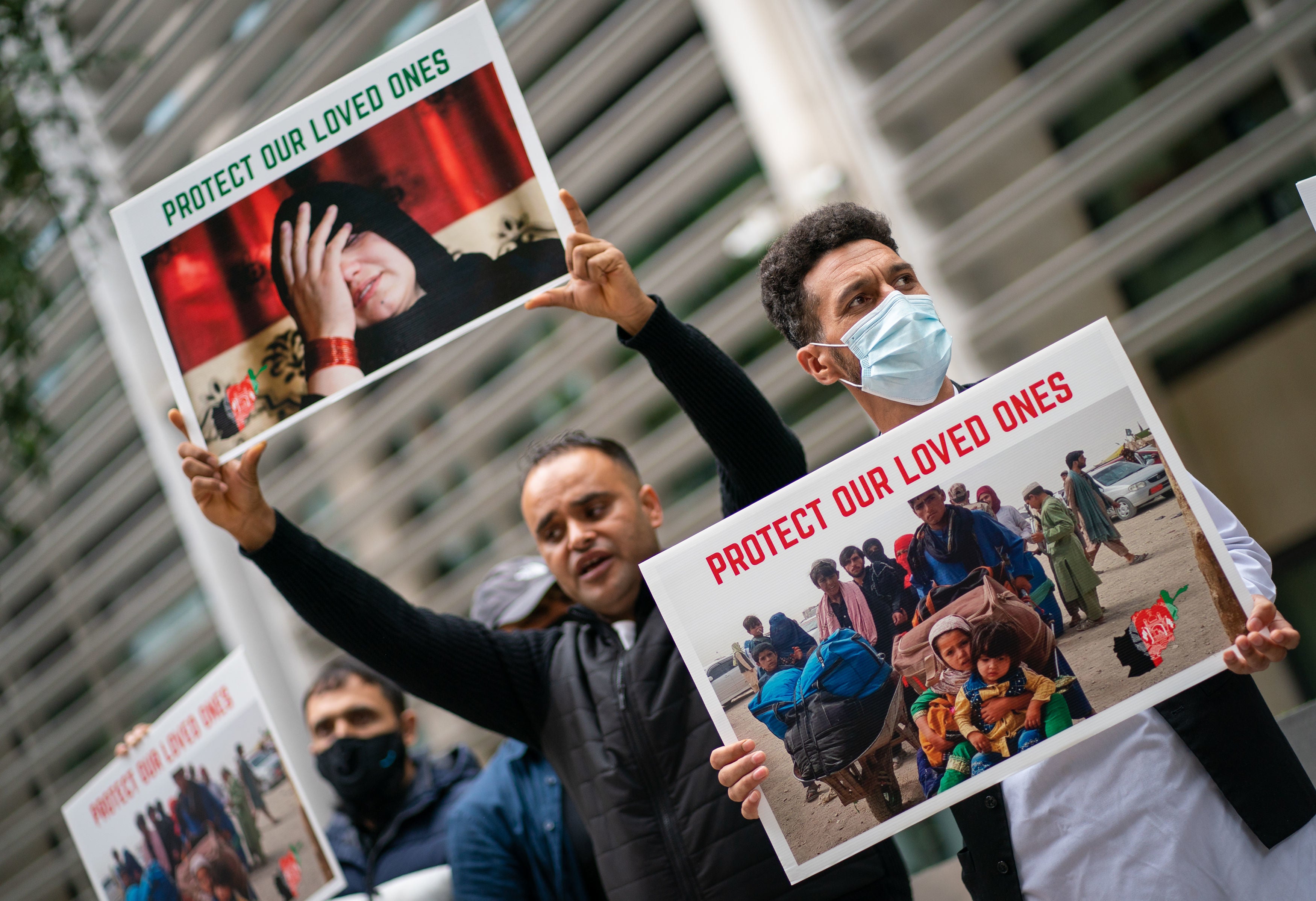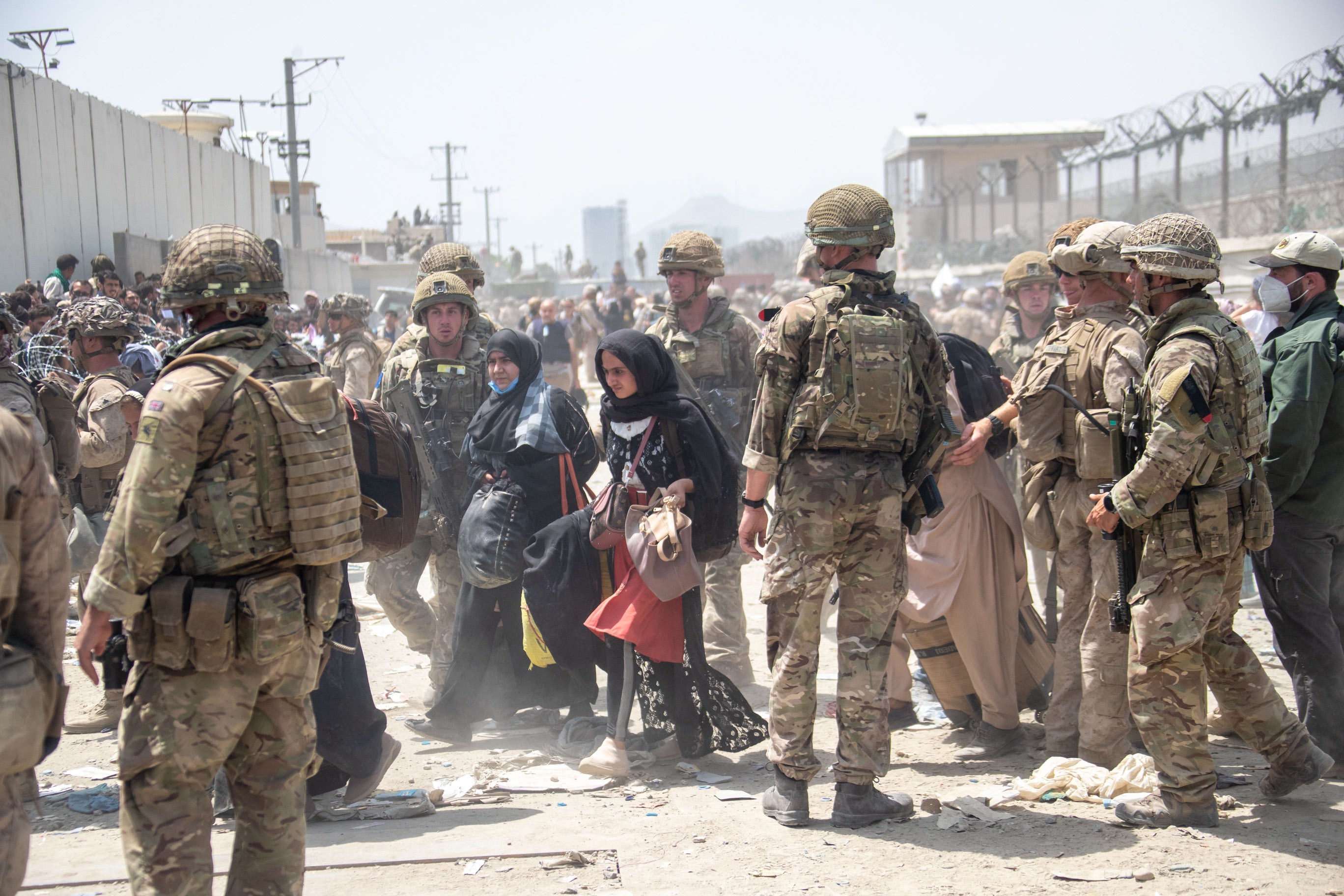Afghans who worked for Britain given temporary homes in Welsh military camp
Up to 180 people given sanctuary from Taliban in UK under scheme beset by delays
Your support helps us to tell the story
From reproductive rights to climate change to Big Tech, The Independent is on the ground when the story is developing. Whether it's investigating the financials of Elon Musk's pro-Trump PAC or producing our latest documentary, 'The A Word', which shines a light on the American women fighting for reproductive rights, we know how important it is to parse out the facts from the messaging.
At such a critical moment in US history, we need reporters on the ground. Your donation allows us to keep sending journalists to speak to both sides of the story.
The Independent is trusted by Americans across the entire political spectrum. And unlike many other quality news outlets, we choose not to lock Americans out of our reporting and analysis with paywalls. We believe quality journalism should be available to everyone, paid for by those who can afford it.
Your support makes all the difference.Scores of Afghans who risked their lives to support British forces fighting the Taliban will be given temporary homes at a military camp in Wales.
East Camp, a Ministry of Defence (MoD) housing estate in St Athan in the Vale of Glamorgan, will house 50 people by the end of the month, with more joining them next month.
The site, which can take up to 180 people, will be used by families who are eligible under the Afghan Relocations and Assistance Policy (Arap).

The policy is aimed at supporting people and their families who worked for – or with – the UK government and British armed forces in Afghanistan, such as interpreters, and who are now fleeing the Taliban regime.
Ministers have faced criticism over their handling of applications to the scheme, which has been beset by delays and what the government has admitted has been flawed decision-making.
Last month, The Independent revealed more than 200 Afghans who applied for sanctuary in the UK had been waiting two years for a decision from British authorities.
Campaigners said the Afghans, who applied for help based on their claims that they helped British armed forces, had been left in limbo and many were living in fear for their lives.
Last summer ministers missed their own target of clearing the backlog of around 8,000 applications waiting to be processed.
Interpreters who worked with the British army and Afghans who served alongside the UK special forces were among those still hoping to settle in Britain almost three years after the Taliban takeover of their country in August 2021.
An investigation by The Independent, Lighthouse Reports and Sky News revealed how soldiers from two particular units had been subjected to torture and murder at the hands of the Taliban after being denied help by the UK.
Evidence showed they were paid, trained and worked “shoulder to shoulder” with British special forces before the fall of Kabul.
The government later admitted that flawed decision-making led to some Afghan heroes being turned down for sanctuary in Britain.
The government pledged to reassess 2,000 applications from those with credible links to Afghan specialist units.

Last year, nearly 3,000 Afghans, many of whom worked for the British army, were stranded in Islamabad, Pakistan, for months after the UK stopped chartering flights and demanded refugees find their own housing in Britain before travelling.
At least one Afghan interpreter who served with the British army was deported back to the Taliban from Pakistan while waiting for his application to be processed. The UK government agreed to grant his relocation only after he had been forcibly returned to Afghanistan. He later managed to return to Pakistan.
An MoD spokesperson said: “We owe a debt of gratitude to those brave Afghans who risked their lives working alongside our forces in support of the UK mission.
“To ensure Arap-eligible families can begin a settled life in the UK as quickly as possible, the UK government is offering transitional and settled accommodation from the Defence Estate, including at East Camp St Athan.
“Eligible Afghans will be housed there temporarily for an approximate period of six weeks before moving to more settled accommodation.”
Eligible Afghan citizens may come to the UK with a partner, dependent children and other family members deemed eligible by the MoD and suitable for relocation by the Home Office.
Those who arrive in the UK under the Arap scheme have indefinite leave to remain.
The MoD said it was working with the Welsh government and the Vale of Glamorgan Council to ensure the project was managed “with everybody in mind”, especially local people.

Join our commenting forum
Join thought-provoking conversations, follow other Independent readers and see their replies
Comments